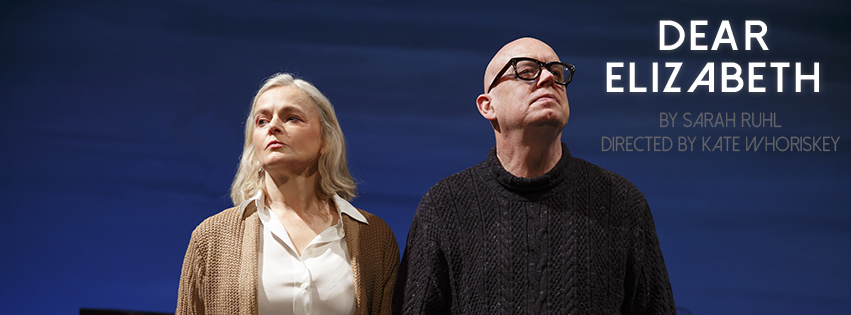20th century poets shine on stage
Ellen McLaughlin and Rinde Eckert were one of the many duos to play Elizabeth Bishop and Robert Lowell in the Women’s Project Theatre’s production of the play “Dear Elizabeth”.
November 30, 2015
Elizabeth Bishop and Robert Lowell, two of the most important poets of the 20th century, had a close and respectful friendship; they were each other’s fiercest critics and most passionate supporters. Their consistent correspondence is rife for dramatic interpretation and Sarah Ruhl brings their words to the stage in her play “Dear Elizabeth.” With dialogue comprised entirely of the letters the two poets sent back and forth to each other over their lifetimes, the play tells an intimate and lyrical story of two people who struggled with internal anxieties and fears but maintained a quietly strong relationship over the course of 30 years.
The current production at the Women’s Project Theater has a minimally designed set, with two desks at the center surrounded by suitcases and randomly strewn props that are only occasionally referenced in passing in the letters. Bishop and Lowell take turns reading aloud the letters they are writing to each other, sometimes simply seated at their desks and sometimes moving around and interacting with each other.
Ruhl has carefully selected the letters for the play from hundreds they wrote to each other. The plot is not a driving force in the narrative. Instead, the emotions of the scene and the intensity of their correspondence naturally rises and falls. The poems she has included are some of the writers’ most famous ones, but they take on a new meaning in their context here. By learning about the poets lives’ and their communication with one another, the poems become more powerful.
While two people reading letters on a stage could seem to grow quite boring after a while, there are thankfully interesting uses of props and movement that provide breaks in the dialogue. The Stage Manager, the only other character in the play, tells the audience dates and key events that are not spoken of directly in the letters.
The instances throughout the play when the two poets meet in person are done with subtle beauty, as the two look at each other as longtime friends would, not with giddy excitement but with comfort.
This production of “Dear Elizabeth” has a rotating cast of actors playing the roles of Bishop and Lowell. The cast in this showing featured J. Smith Cameron as Bishop and John Douglas Thompson as Lowell. The two had magnificent chemistry and Thompson brought an air of melancholy that perfectly suited the role.
“Dear Elizabeth” is a fascinating look at the struggles of artists to express themselves despite their internal demons and external tribulations. Above all else though, the play works as a study of longtime friendship, how it can intensify and recede. Bishop and Lowell had a strong, formidable friendship, one that helped them produce their greatest work.
“Dear Elizabeth” is playing at the McGinn/Cazale Theatre, 2162 Broadway until Dec. 5.
A version of this article appeared in the Nov. 30 print edition. Email Zach Martin at [email protected].

























































































































































